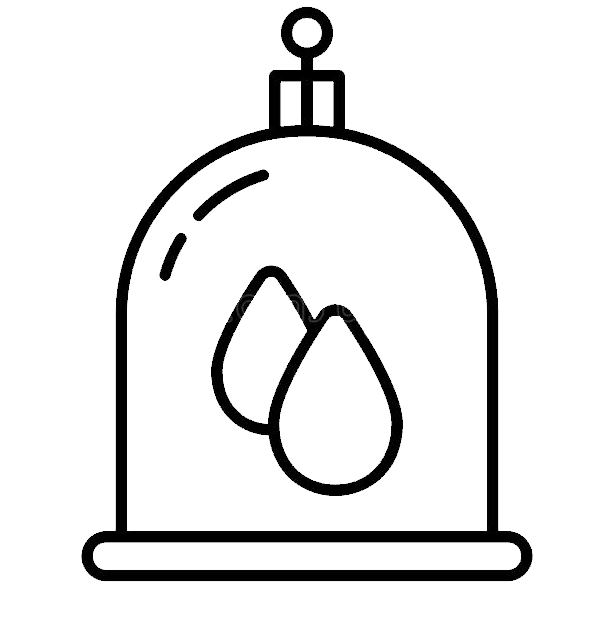

Mehdipatnam, Hyderabad, Telangana
9 am to 6 pm (Fridays off)
Polycystic ovary syndrome (PCOS) is a hormonal disorder affecting many women worldwide. It is characterized by hormonal imbalances, ovarian cysts, and various symptoms such as irregular menstrual cycles, excessive hair growth, acne, and fertility issues. While PCOS management often involves lifestyle changes, hormonal therapies, medicines etc but the unique Hijama Cupping Therapy have gained attention with its amazing results in addressing PCOS symptoms. PCOS (Polycystic Ovary Syndrome) and PCOD (Polycystic Ovary Disease) are two terms often used interchangeably, but they refer to the same medical condition. PCOS is the more commonly used term, while PCOD is used less frequently.

Both terms describe a hormonal disorder that affects women of reproductive age. In this article, we will explore how hijama can play a role in managing PCOS and supporting overall well-being.
What is Hijama? Hijama is an ancient therapeutic technique that involves creating suction on specific points of the body using cups. The vacuum created by the cups helps to draw out stagnant or congested blood from the underlying tissues, promoting improved circulation and stimulating the body's natural healing processes.
Here are potential ways in which hijama can help individuals with PCOS:
1. Improved Blood Circulation:
Hijama enhanced blood circulation in the treated areas. By targeting specific points associated with reproductive organs, hijama stimulates blood flow to the ovaries and uterus, potentially helping to improve their function. Better blood circulation assists in regulating hormone levels and reducing menstrual irregularities.
2. Detoxification:
Hijama aids in detoxification by drawing out toxins and metabolic waste products from the body. PCOS is associated with insulin resistance and hormonal imbalances, and detoxification supports the body's natural mechanisms for hormone regulation.
3. Stress Reduction:
Stress can worsen PCOS symptoms and disrupt hormonal balance. Hijama is often accompanied by a relaxing and calming effect, helping to alleviate stress and promote a sense of well-being. By reducing stress levels, hijama indirectly contribute to better management of PCOS.
4. Pain Relief:
Some women with PCOS experience pelvic pain or discomfort. It is well established that Hijama provides relief from musculoskeletal pain and promote relaxation, which may be beneficial in managing such symptoms.
5. Support for Fertility:
Infertility is a common concern for women with PCOS. While hijama alone may not directly treat all cases of infertility, but it supports reproductive health by improving blood circulation, reducing inflammation, and enhancing overall well-being. When used as part of a comprehensive fertility treatment plan, hijama does have a major positive impact.
Conclusion:
Hijama, along with diet and lifestyle changes, can help females suffering from Polycystic Ovaries Syndrome and infertility. Hormonal disorders lead to enlarged ovaries and multiple cysts. By balancing hormones through Hijama not only eventually be free from PCOS but it also clears blockage and inflammation from the fallopian tubes, females regulate their menstruation and restore their fertility.It is important to note that hijama should be performed by trained and experienced professionals to ensure safety and effectiveness.
Disclaimer:
This article is for informational purposes only and should not be considered as medical advice. Consult with a qualified healthcare professional before making any decisions regarding your health and treatment options.

Writer
Fariha Simin
Female Lead at i-ReviveOne of the most commonly disregarded fact is that blood circulation issues can indirectly cause hormonal imbalances . Let's say when someone is diagnosed with Hypothyroid it not necessarily mean that the Thyroid gland...
Read MoreBlood cleansing plays a vital role in maintaining good health and overall well-being. The bloodstream acts as a transportation network, delivering essential nutrients, oxygen, and hormones to cells throughout the body and...
Read MoreThe proper functioning of our organs and muscles relies on a continuous and ample blood supply, which carries vital resources such as oxygen, nutrients, healing agents, hormones, anti-inflammatories, and natural pain relievers like opi...
Read MoreWhen cups are applied to the skin, a negative pressure is created, causing a rapid diffusion of various substances within the tissues. These substances are drawn...
Read MoreHijama, also known as cupping therapy, is considered a divine therapy that encompasses the body, mind, and soul. The human body relies on five vital organs—heart, brain, kidneys, liver, and lungs—for survival. The de...
Read MoreHijama Cupping therapy extends beyond the mere placement of cups, incisions, and blood extraction. The utilization of negative pressure and superficial incisions during Hijama Cupping yields diverse and profound effe...
Read MoreSpider veins are often confused with varicose veins, but there are distinct differences between the two. Spider veins are smaller, closer to the skin's surface, and typically do not cause significant symptoms. Varicose veins, on these a...
Read MorePolycystic ovary syndrome (PCOS) is a hormonal disorder affecting many women worldwide. It is characterized by hormonal imbalances, ovarian cysts, and various symptoms such as irregular menstrual cycles, excessive hair...
Read MoreHeavy metals, such as lead, mercury, arsenic, cadmium, and others, are toxic substances that can have extremely harmful effects on the body. Heavy metals can adversely affect human health: - Toxicity: Heavy metals ...
Read More